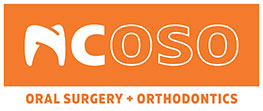Wisdom Teeth Removal
Wisdom teeth are the third and last permanent molars to develop, typically in your late teens or early twenties. Sometimes these teeth erupt into the mouth and are properly aligned, but most often they are misaligned and require extraction.
Many people’s jaws are too small for wisdom teeth to erupt into the mouth and the teeth often become impacted (unable to fully erupt). They may grow sideways, partially emerge from the gum, or remain trapped beneath the gum and bone.
Impacted wisdom teeth can become infected, leading to swelling, stiffness, and pain. Pressure from erupting wisdom teeth may disrupt the natural alignment of other teeth. Partially erupted wisdom teeth are prone to tooth decay and gum disease. More seriously, tumors or cysts can form around impacted wisdom teeth, resulting in the destruction of the jawbone and healthy adjacent teeth.
Your dentist may recommend removal of your wisdom teeth before these problems develop. This is especially true in your teenage years, when the wisdom teeth’s roots are not fully developed and the surrounding bone is less dense. At this stage, surgical risks, potential complications, and post-operative recovery time are reduced. Studies have documented that early treatment results in a trouble-free outcome following surgery.
Your Dental Evaluation
During your initial visit your doctor will evaluate your x-rays, perform a complete oral examination, and review your dental and medical history. They will then evaluate the need for removal of your wisdom teeth and the potential risks and complications involved with your surgery.
Your doctor will discuss your options for anesthesia (local anesthesia, a combination of local anesthesia and laughing gas, which is Nitrous Oxide, or IV sedation) and discuss what you can expect after surgery. Following your evaluation, we will review your pre-operative instructions, treatment plan, and schedule your surgery appointment.
The Procedure
The surgical approach will vary depending on the position of your wisdom teeth. This will be discussed with you during your consultation. An incision is frequently made in the gum in order to get access to the tooth, and then the gum is closed with dissolvable sutures.
Upon discharge, you will receive post-operative instructions, extra gauze pads, a prescription for pain medication, ice packs and possibly a prescription for an antibiotic. You will also be given an emergency contact number where you can reach your surgeon should you have any questions or concerns.
We provide surgery in a safe environment, utilizing modern monitoring equipment and surgical team members who are experienced in anesthesia techniques and the latest technologies.
Surgical Removal of Teeth
We routinely perform the surgical removal of severely decayed, fractured, or infected teeth. As with wisdom teeth, these teeth can be removed under local anesthesia, a combination of local anesthesia and laughing gas or IV sedation. Often other adjunctive procedures may be completed at the same time to facilitate utilization of a partial or complete denture.
All Oral Surgery Services | Meet our Oral Surgeons | Request Appointment
